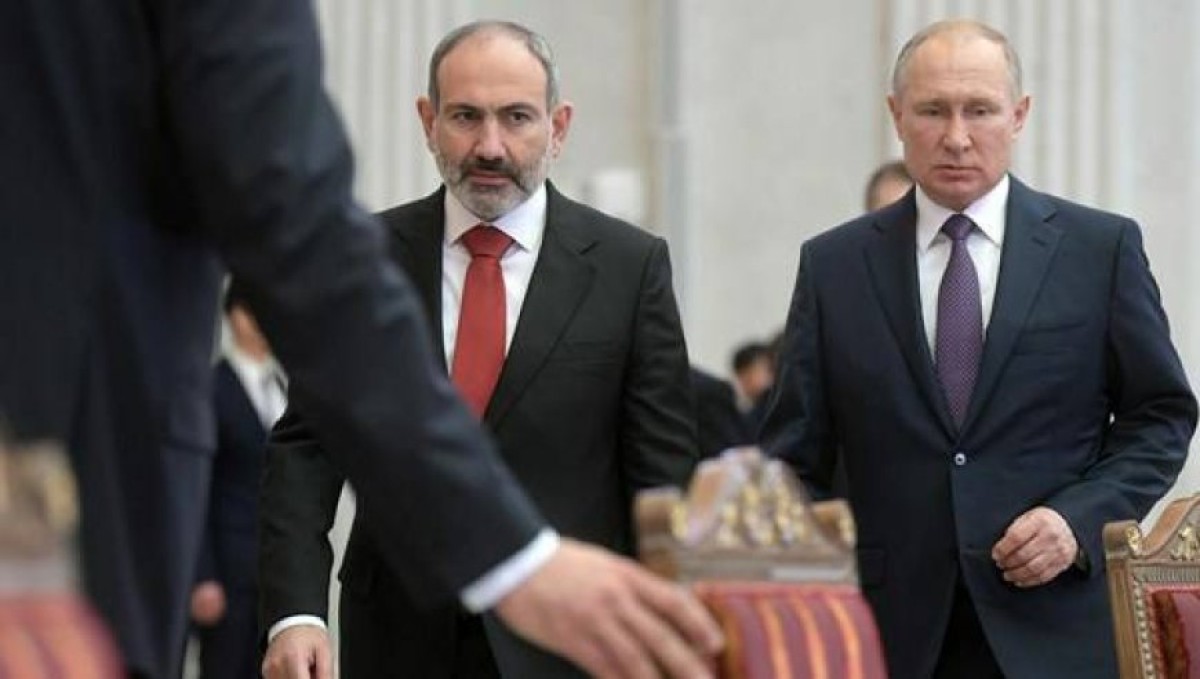 510
510
Armenia-NATO Relations: A Foreboding Alarm for Russia?
Armenia-NATO Relations: A Foreboding Alarm for Russia?
In a surprising turn of events, Yerevan has announced its full cooperation with the International Criminal Court (ICC), signaling a dramatic shift towards the Western bloc, a development that carries profound implications for Armenia, as the ICC had earlier declared Russian President Vladimir Putin a war criminal, endorsing his arrest in member countries. Evidently, Yerevan's recent announcement underscores the growing divide between Armenia and Russia, a schism that manifests itself across multiple facets.
By: A. Yeganeh
Foremost among these dimensions is the fallout from the Armenia-Azerbaijan conflict, a lingering conflict that held great expectations for Armenia in terms of Russian support. Moscow had previously thrown its military weight behind Yerevan against Baku, yet this support failed to materialize during the 2020 Second Nagorno-Karabakh War, ultimately culminating in Azerbaijan's victory and the occupation of numerous strategic Armenian territories. In light of this reality, the Western-backed Armenian administration led by Prime Minister Nikol Pashinyan, by aligning with the West, seeks to bolster its position vis-à-vis Azerbaijan, yearning for an alternative to the traditional reliance on Russia, which has long been perceived as an older brother figure. This delicate matter carries profound significance for Russia, as it endeavors to maintain its traditional sway over Armenia while staunchly guarding against Western influence in its soft belly, the South Caucasus. Armenia's flirtation with NATO and other Western governments thus serves as a foreboding alarm for the Kremlin, signaling a potential shift in the balance of power in the region.
The change in Armenia's foreign relations becomes increasingly apparent as the country seeks to simultaneously leverage the benefits of its ties with the United States and its allies while maintaining a pragmatic relationship with Russia. This opportunistic approach has the potential to breed serious misunderstandings for Russia, given that, until recently, Yerevan had staunchly aligned itself with Moscow. Consequently, this shift represents a critical juncture for Yerevan, one that bears immense dangers. Conversely, the West, aiming to exert its influence in the Caucasus region and thereby contain its adversaries, Russia and China, will undoubtedly embrace this new political trajectory in Armenia.
Simultaneously, the controversy surrounding the establishment of transit corridors linking the East and West fronts emerges as another pivotal aspect in the development of both West Asia and the Caucasus regions. The ambitious One Belt, One Road Initiative (BRI), coupled with the North-South Corridor, has gained significant traction in recent years, presenting a vision for the future world order. Armenia and Iran hold crucial positions within this framework, and any potential loss of their support would prove detrimental to the BRI. Conversely, the Western bloc has devised alternative routes, exemplified by the so-called Turan Corridor, Turkey's blueprint for the Caucasus and Central Asian countries. The United States, eager to establish a foothold through Turkey, actively supports the Turan Corridor, trying to derail the North-South Corridor, which is backed by Russia. Should Armenia lend its support to the Turan Corridor, it risks further straining its bilateral relations with Russia. Political observers argue that the potential for a new conflict looms as each side vies to establish dominance through the realization of their respective corridors.
In essence, it becomes evident that the Armenian government has endeavored to distance itself from Moscow through its Western-oriented policies, inadvertently aligning itself with NATO's sinister designs for Armenia. The simmering conflict between Azerbaijan and Armenia serves as a poignant reminder that Western powers, with their grand ambitions, seek to spark yet another war in the Caucasus region to further their own nefarious agendas. Consequently, it is imperative for regional actors, including Armenia and Azerbaijan, to transcend their differences and adopt a broader perspective, one that takes into account the intricate chessboard of extra-regional powers. By doing so, they can avoid becoming mere pawns in NATO's machinations.
In conclusion, Armenia's recent pivot towards the Western bloc, as exemplified by its cooperation with the ICC, has set in motion a dangerous geopolitical game in the Caucasus region. As Yerevan seeks to redefine its alliances and navigate the treacherous currents of regional politics, the ramifications for Russia and the wider geopolitical landscape are profound. The delicate balance between East and West, the implications of transit corridors, and the necessity for regional actors to assert agency amidst external pressures all contribute to the enthralling saga unfolding in the Caucasus. Only time will tell how this intricate web of interests will ultimately shape the destiny of the region.
 510
510
Comment
Post a comment for this article